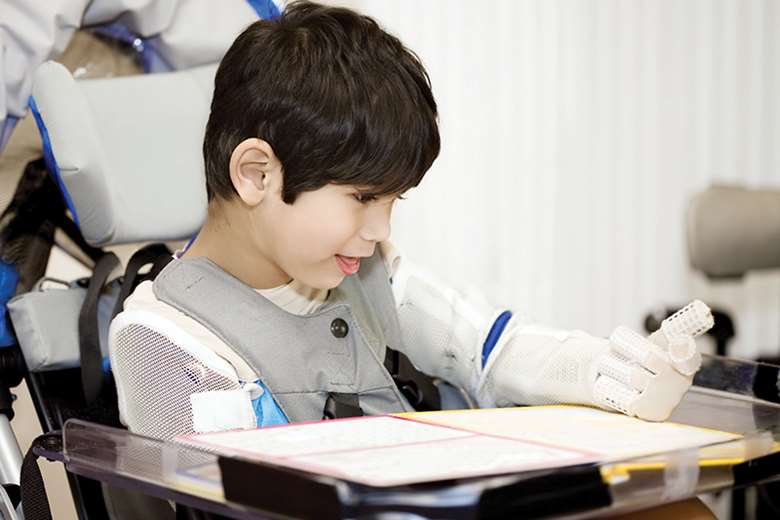Children with special educational needs and disabilities (SEND) have been treated as an afterthought by the government during the Covid-19 pandemic, a report has warned.

The report warns that advice to special schools was frequently published later than guidance for mainstream schools when pandemic restrictions, including lockdowns and school closures, were ordered by government.
“This led settings and young people with SEND to be seen as, and feel like, an afterthought,” the report by the All-Party Parliamentary Group (APPG) for SEND says
The report, called Forgotten. Left behind. Overlooked, details the experiences of children and young people with SEND during the pandemic in 2020.
Remote teaching was particularly hard to access for some SEND children, found the report, which includes recommendations for change from a raft of charities and children’s organisations.
Among those contributing was the National Deaf Children’s Society (NDCS), which said that remote learning options were not accessible for deaf children without additional communication support, such as speech to text software or sign language intepreters.
“We believe it’s unacceptable that accessibility continues to be an afterthought and would like to see a much stronger lead and encouragement” from the government, said the charity.
Meanwhile, Ambitious about Autism calls on the government to “listen to young people themselves about what needs to change”. It also wants to see better online peer support to tackle loneliness and isolation.
Essex County Council has also contributed to the report. It also calls for a stronger focus on peer support, including providing “a buddy or mentor” to children returning to school after lockdown to talk about their experiences.
Promoting mindfulness, yoga and mediatation activities are other recommendations from the council.
Elsewhere, the Royal College of Nursing calls for better support for families who “require greater help” in supporting children during the health crisis and school lockdowns.
Richard Kramer, chief executive of the charity Sense, which also contributed to the report, said the last 12 months have “amplified” existing issues within the SEND system.
“Many children with complex disabilities have missed out on vital education over the last year, as well as the therapies, support and access to specialist equipment that they receive through school,” he said.
“No child should miss out on access to a quality education. We want to see a dedicated plan for children and young people with SEND, along with appropriate funding and resources, to support them to catch up on lost learning and receive the right care to meet their needs.”
